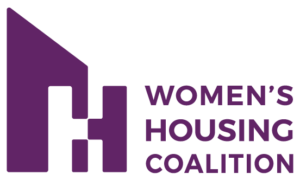by Admin | Sep 12, 2018 | Uncategorized
Thanks to a grant we received from the Baltimore Women’s Giving Circle this summer, we have been able to add a new member to the WHC team! We are pleased to introduce Maria Wetherington, our new family case manager.
Before our new case manager hire, we had one family case manager who was handling all 17 current families being served by WHC. On average, our case manager was working with 35+ people! As you can imagine, that stretched our case manager thin. They weren’t able to dedicate enough individualized attention to the women and their families.
With the grant money we received from the Baltimore Women’s Giving Circle, our two case managers will be able to provide our families with more individualized attention. The goal of our family case managers is to support both our parents and our children as much as possible so the family can thrive. By distributing the number of families served between the two case managers, this will certainly help them to do that!
We are so thankful for the opportunity to add another family case manager to the WHC team! Learn more about what programs we offer to our residents here.

by Admin | Sep 12, 2018 | Uncategorized
A recent study by RAND sheds light on how crucial permanent housing is and will continue to be for the homeless population.
The study was focused on homelessness in Los Angeles, a city which is known for its large homeless population. The county health department started a program aimed at ending homelessness in Los Angeles by moving frequent users of health services who are homeless into supportive housing called Housing For Health.
Since the program’s start, it has moved 3500 people off the streets of Los Angeles. Out of 900 participants, 96% have stayed in the program for over a year. Program participants spent 75% less time in the hospital and had 70% fewer visits to the ER.
This evidence clearly indicates that moving those who are homeless into permanent, supportive housing makes a difference.
The study also showed an improvement in overall mental health when participants remain in the program. All of our residents at WHC have at least one diagnosed disability. With structured, supportive housing and programming, we are able to have a high success rate helping to break the cycle of homelessness. Learn more about what we do here.

